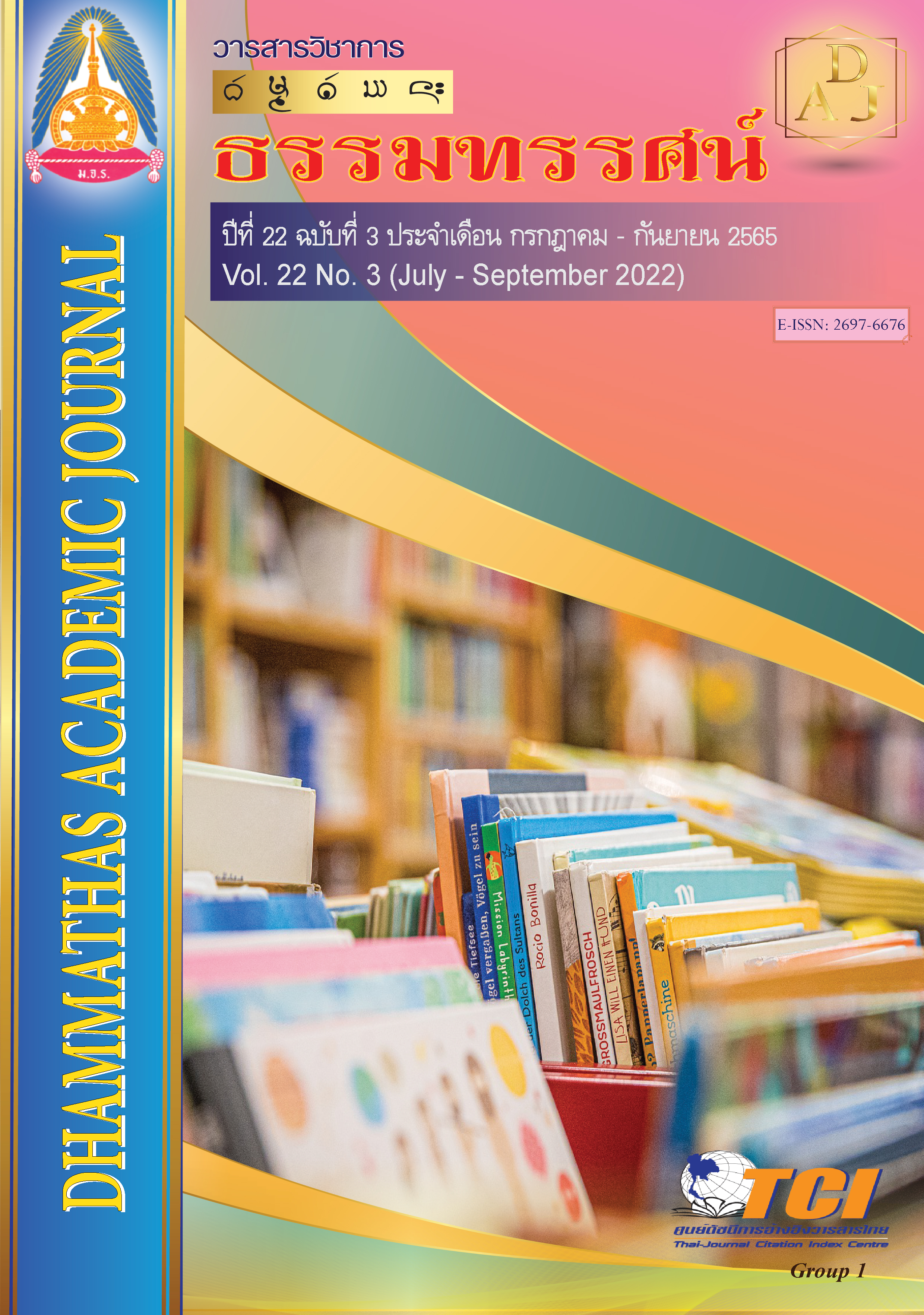An Analysis of Politics in Theravada Buddhist Philosophy and Plato’s Philosophy
Main Article Content
Abstract
The objectives of this research article were: 1) to study politics in Theravada Buddhist philosophy; 2) to study politics in Plato's philosophy; 3) to analyze politics in Theravada Buddhist philosophy and Plato's philosophy. This study was carried out by means of the documentary research through studying Tipitaka, academic documents and relevant research. The obtained data were interpreted by Descriptive Analysis.
The research results were as follows:
1. Politics in Theravada Buddhist philosophy is the organization of country affairs by any authority to achieve the goal, namely the interests of the people. It is to take care of human beings to live together in a fair and orderly manner whether the country is good and calm or not. It depends on human beings who are virtuous and give importance as an individual in society rather than a system of government or a state.
2. Politics in Plato's Philosophy is to bring justice to all and give importance to the system or society because man is a social animal, so that human beings cannot live alone. Plato predominantly considered the best state on its justice and to be governed by a sage king by introducing the concept of the republic, which is a desirable ideal society, characterized as a state or community that has a life of dependence on people in society.
3. Politics in Theravada Buddhist Philosophy and Plato's philosophy both emphasize on the development of human potential and qualities that show the importance of parenting. The need to have good rulers who are responsible for creating benefits and peace of the people is that the rulers must have Dhammas or morals. The Theravada Buddhist philosophy focuses on the individual who uses the Dhamma principles in self-government and society. Plato's philosophy, on the other hand, focuses on an educational system that enables the selection and production of people who are physically, intellectually, and morally qualified.
Article Details

This work is licensed under a Creative Commons Attribution-NonCommercial-NoDerivatives 4.0 International License.
เพื่อให้เป็นไปตามกฎหมายลิขสิทธิ์ ผู้นิพนธ์ทุกท่านต้องลงลายมือชื่อในแบบฟอร์มใบมอบลิขสิทธิ์บทความ ให้แก่วารสารฯ พร้อมกับบทความต้นฉบับที่ได้แก้ไขครั้งสุดท้าย นอกจากนี้ ผู้นิพนธ์ทุกท่านต้องยืนยันว่าบทความ ต้นฉบับที่ส่งมาตีพิมพ์นั้น ได้ส่งมาตีพิมพ์เฉพาะในวารสาร วิชาการธรรม ทรรศน์ เพียงแห่งเดียวเท่านั้น หากมีการใช้ ภาพหรือตารางของผู้นิพนธ์อื่นที่ปรากฏในสิ่งตีพิมพ์อื่นมาแล้ว ผู้นิพนธ์ต้องขออนุญาตเจ้าของลิขสิทธิ์ก่อน พร้อมทั้ง แสดงหนังสือที่ได้รับการยินยอมต่อบรรณาธิการ ก่อนที่บทความจะได้รับการตีพิมพ์References
เดือน คำดี. (2534). พุทธปรัชญา. กรุงเทพฯ: โอเดียนสโตร์.
ประยงค์ สุวรณบุบผา. (2541). รัฐปรัชญาแนวคิดตะวันออก-ตะวันตก. กรุงเทพฯ: โอ.เอส. พริ้นติ้งเฮ้าส์.
ปานทิพย์ แซ่โค้ว. (2542). การศึกษาเชิงเปรียบเทียบเชิงปรัชญาเรื่อง ธัมมิกราชาและราชาปราชญ์.(วิทยานิพนธ์ศิลปศาสตรมหาบัณฑิต). เชียงใหม่: มหาวิทยาลัยเชียงใหม่.
ปานทิพย์ ศุภนคร. (2545). ปรัชญาเบื้องต้น. กรุงเทพฯ: มหาวิทยาลัยรามคำแหง.
เปลโต้. (2523). อุตมรัฐ (The Republic) / เปลโต้ (ปรีชา ช้างขวัญยืน, ผู้แปล). กรุงเทพฯ: จุฬาลงกรณ์มหาวิทยาลัย.
มหาจุฬาลงกรณราชวิทยาลัย. (2539). พระไตรปิฎกภาษาไทย ฉบับมหาจุฬาลงกรณราชวิทยาลัย. กรุงเทพฯ: มหาจุฬาลงกรณราชวิทยาลัย.
สมบูรณ์ สุขสําราญ. (2527). พุทธศาสนากับการเปลี่ยนแปลงทางสังคมและการเมือง. กรุงเทพฯ: จุฬาลงกรณ์มหาวิทยาลัย.
สิทธิ์ บุตรอินทร์ และภูมินทร์ บุตรอินทร์. (2554). ปรัชญาการเมืองเปรียบเทียบศึกษาการเมืองแนวบูรณาการด้านอภิปรัชญา จริยศาสตร์ ตรรกศาสตร์ และคุณวิทยา. กรุงเทพฯ: ศยาม.
Archie J. Bahm. (1969). The Heart of Confucius. New York: John Weatherhill.

